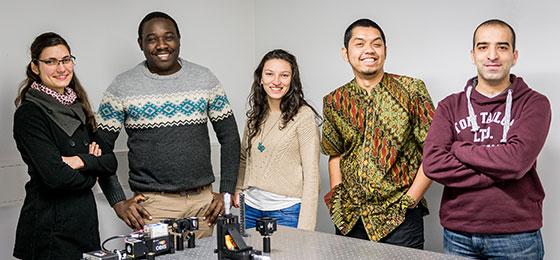Successful first surveys for the SNSF careers cohort study

A series of surveys of applicants for SNSF career grants has generated initial insights. They enable the SNSF to better understand the applicants’ career paths.
The SNSF Career Tracker Cohorts (CTCs) have been designed as a panel study with annual cohorts. The ten-year study kicked off in October 2018 with its first survey. It covered the career paths of postdocs who applied for a grant to the SNSF career funding schemes Ambizione, Eccellenza, Early Postdoc.Mobility, Postdoc.Mobility or PRIMA. The project team conducting the study is based at the University of Bern.
High response rate
The study currently comprises three cohorts. All of the surveys so far have achieved a response rate of approx. 90 per cent. To keep track of their professional and personal situation over time, the project team has surveyed some members of the first few cohorts already twice. Typically, the participation rate drops when surveys are repeated. In spite of this, over 75 per cent of those invited responded to the second survey.
Selected results of the study
The initial results show that early-career researchers devoted more time to research than more advanced researchers in the period following their application to the SNSF. They also indicate that men spent more time doing research than women. Teaching activities, on the other hand, took up more and more time as the applicants' careers progressed. On the whole, women spent more time teaching than men.
The more advanced the researchers were in their careers, the more they stressed the importance of job security, career development and the possibility of remaining in the country where they had completed the questionnaire. By contrast, a healthy work-life balance and the option of working part time were cited as more important factors by the less advanced researchers.
Moreover, the second round of surveys showed that, of the postdocs whose Early Postdoc.Mobility or Postdoc.Mobility application had been rejected, the majority were still employed in academia.
The SNSF will be able to study more complex career-related questions once the data from further cohorts, and multiple surveys in individual cohorts, become available. For example, the question how SNSF career funding schemes influence career progression, the retention rate of applicants in academia, and differences between the career paths of men and women.
Freely accessible reports and documentation
The SNSF is helping to fill knowledge gaps with respect to the factors and processes that influence researchers' career paths. A description of the CTC study as well as the results so far are openly available on the project's website.